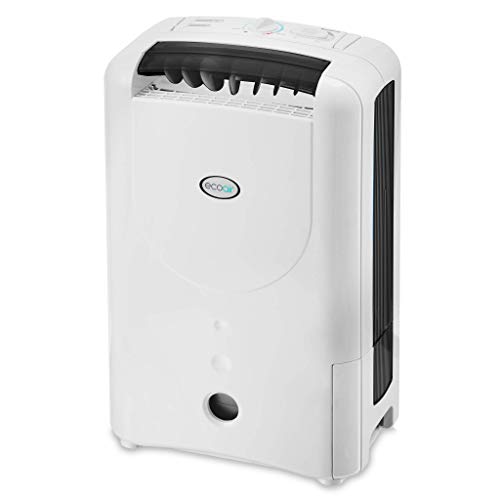How to stop condensation on double glazed windows in winter - 3 easy things you can do now
Condensation on windows doesn't have to be an inevitable part of winter - just follow this expert advice


Condensation is rife at this time of year, and it can be difficult to know the best way to deal with it. But once you do know how to stop condensation on double glazed windows in winter, you'll have far less damp-related issues to deal with.
Methods to get rid of damp and condensation aren't in short supply, but what's the best way to tackle condensation on double glazed windows in winter specifically? Aside from investing in one of the best dehumidifiers, other top tips include opening the windows and maintaining warmer temperatures in the house.
We've asked the experts for their top tips on preventing condensation on these types of windows and at this time of year, and the good news is, you can start implementing most of their advice now, and begin to enjoy a damp-free home as a result.
How to stop condensation on double glazed windows in winter
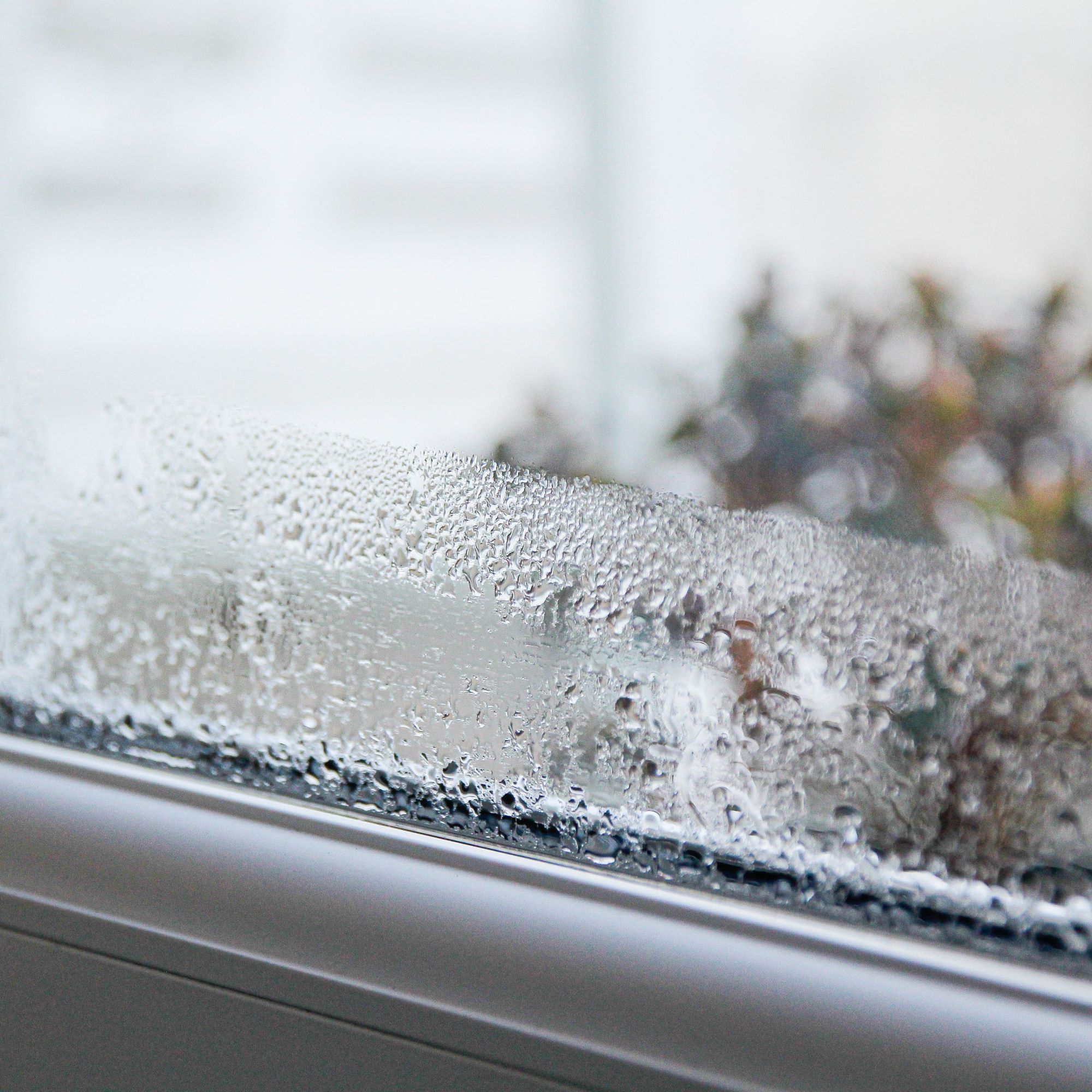
To know how to stop condensation on double glazed windows in winter, it's helpful to know why it occurs in the first place.
'Condensation is formed on windows when warm, moist air inside the home comes into contact with the cold surface of the window,' Nicholas Auckland, heating and energy expert at Trade Radiators explains. 'This happens mainly in winter, when the temperature outside makes the windows cold, while the temperature inside is warmer and humid.'
When there's a lack of ventilation in the home, this warm and humid air has nowhere to go, so it lands on the windows and turns into water droplets in the form of condensation.
Everyday activities, like cooking, showering, and even breathing creates moist air indoors. 'This air has nowhere to go and therefore clings onto any cold surface it can find - like your window panes,' says Ryan Calvert, product expert at Hiatt Hardware.
Get the Ideal Home Newsletter
Sign up to our newsletter for style and decor inspiration, house makeovers, project advice and more.
When it comes to double glazed windows, they'll experience less condensation than single glazed, but more than triple glazed. 'Single glazed windows are more prone to condensation due to poor insulation, whereas triple glazed windows have the most optimal insulating properties and therefore are best at keeping condensation at bay,' Ryan explains.
So it's pretty common to see condensation on double glazed windows, especially in winter (and you may even start to see condensation between the double glaze as well). While it's difficult to stop this from happening completely, there are some things you can do right away that will help.
1. Open the windows
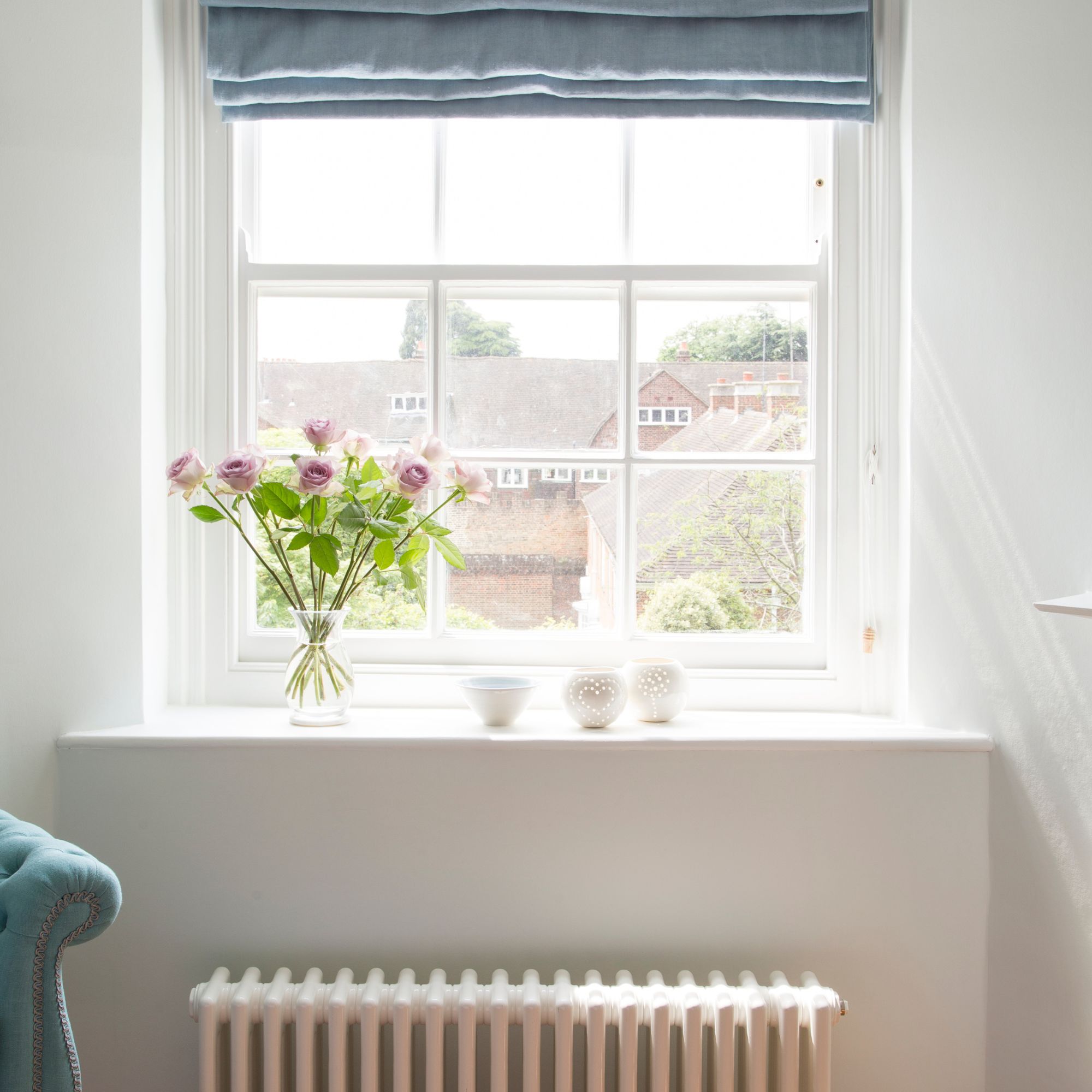
The top tip from the experts is to open the windows for just 15 minutes a day; it might be the last thing we want to do when it's cold outside, but it will make the world of difference.
'Regular ventilation is key in preventing condensation from happening, especially in the evenings,' Ryan says. 'Opening your windows for 15-20 minutes before bed can help to let the moist air escape. If your windows have vents, leave them open to keep the air around your windows cool and dry.'
This is often referred to as burping the home, and is a practise to commit to even in the winter. 'Make sure you have doors open to encourage fresh air to stream in and flow around the home too,' Helen O’Connor, product manager at 247 Blinds says. 'This in turn reduces condensation and prevents mould.'
2. Use a dehumidifier
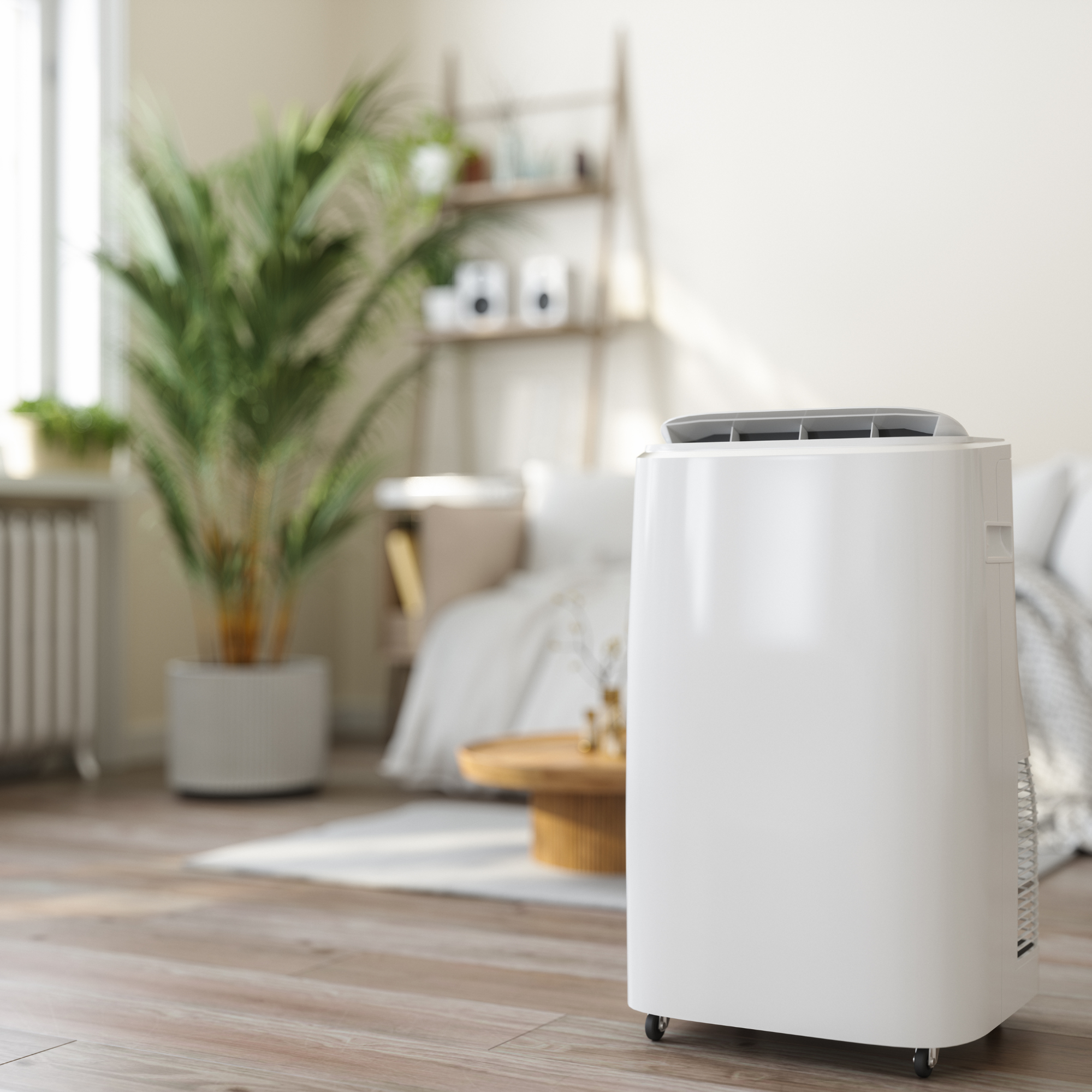
A dehumidifier is one of the best tools in your arsenal for combating condensation in winter. A dehumidifier dries out a room by removing the excess moisture, so there will be a lot less condensation on the windows because the moisture won't get chance to reach them.
'Opt for a quiet dehumidifier so you can use it overnight,' Nicholas Auckland suggests. The Vonhaus Desiccant Dehumidifier is definitely quiet enough to be left on overnight on the low setting.
Aim to keep humidity levels at around 45% (many modern dehumidifiers now display the estimated humidity levels of a room), and this should significantly help with condensation issues.

With a 30L extraction rate, this dehumidifier has one of the highest extraction capabilities on the market. It's also a smart dehumidifier, with WiFi connectivity and voice-activated control, if this is your thing.
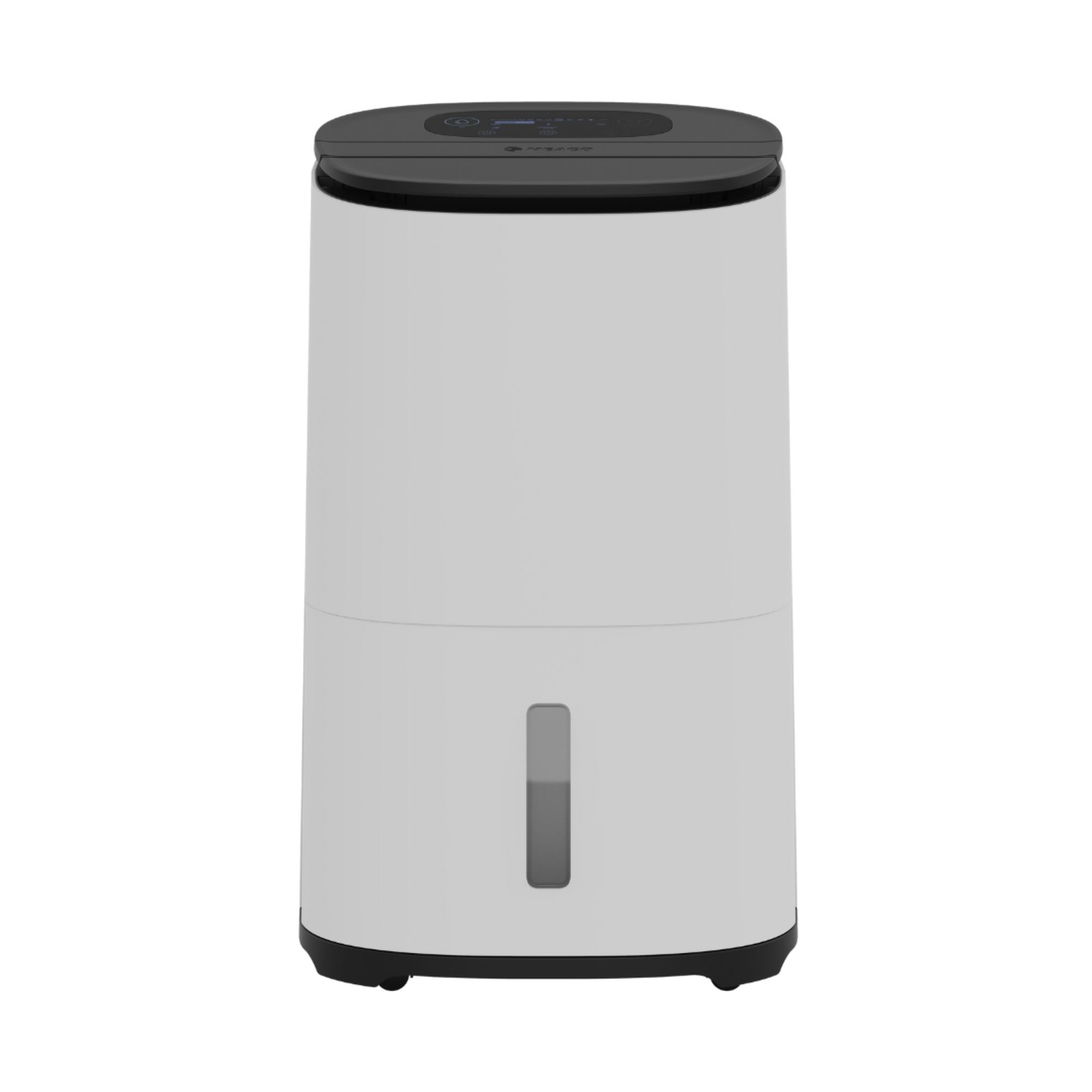
Currently residing in the best overall spot in our dehumidifier buying guide, we're big fans of the two-in-one dehumidifier and air purifier from Meaco. The smart laundry mode will dry wet clothes, and there's a handy timer function.
3. Warm up your home
Keeping your house home in winter is another essential part of reducing condensation on double glazed windows. 'Don't let your home get below 14°C - the colder your home, the colder the temperature of surfaces which means there's more for condensation to form on,' Nicholas explains.
There are many ways to make your home warmer that go beyond turning the central heating on. Firstly, make sure any draughts are covered with draught excluders, such as these window draft excluders from Amazon. Learning how to draught-proof a window is fairly straightforward, and will make a big difference.
You can also invest in thermal blinds or curtains, such as the ThermaShade Natural Texture Pleated Blinds from Hillarys. Seeing as we lose a lot of heat through windows (even double glazed ones), thermal blinds are ideal for minimising this, which in turn will reduce the rate of condensation forming on windows.

FAQs
How do you stop condensation on windows overnight?
Stopping condensation on windows overnight is tricky, but doable. 'The rate of condensation increases at night, as the temperature drops outside,' Ryan from Hiatt Hardware explains. 'Combine this with the warmer indoor heat, and more moisture will develop on your windows as you sleep.'
One of the best ways to combat this is to leave a dehumidifier running overnight, on a low power setting. Ideally, opt for a quiet dehumidifier, so you can use it in the bedroom without it disturbing your sleep.
If you're concerned about how much it costs to run a dehumidifier, a lot of them now have lower power settings, or eco modes, which will bring the cost of running them overnight down.
Should you wipe condensation off windows?
According to experts, wiping off the condensation from your windows is definitely something you should be doing.
'Yes, you should wipe it off as soon as you notice it in the morning, because this will help to reduce the moisture levels in your home,' Nicholas from Trade Radiators says.
'Condensation will drip and leave puddles, as well as cause damage to window frames, curtains, window sills and furnishings. Condensation also deteriorates air quality, and mould spores caused by condensation can possibly cause health issues such as allergies and even respiratory issues,' he finishes.
Mopping up the water droplets will only take a minute each morning, and you can either use kitchen roll or a cleaning cloth. You could also follow this homeowner's process for tackling damp and condensation in her Victorian cottage and use a window vacuum.

The Kärcher window vac is an Ideal Home favourite - it's rechargeable, easy to use and super effective. You'll blast through the condensation in no time.
Knowing how to stop condensation on double glazed windows in winter will make a big difference to the damp levels in your home. You can start implementing these tips now and you should notice an immediate difference.

Katie has been writing freelance since early 2022, specialising in all things homes and gardens, following achieving a Masters in Media and Journalism. She started out writing e-commerce content for several of Future’s interior titles, including Real Homes, Gardeningetc, Livingetc, and Homes and Gardens. Since then she’s been a regular contributor on Ideal Home’s digital team, covering news topics, how-to guides, and product reviews.
-
 5 signs you’ve taken decluttering too far — and how you can pull yourself back, according to organisation experts
5 signs you’ve taken decluttering too far — and how you can pull yourself back, according to organisation expertsYou might have to start resisting the urge to purge
By Lauren Bradbury
-
 What is the Party Wall Act 3m rule and is it something you should be worried about? This is what the experts say
What is the Party Wall Act 3m rule and is it something you should be worried about? This is what the experts sayDon't get caught off-guard by the Party Wall Act 3m rule — our expert guide is a must-read
By Natasha Brinsmead
-
 Shoppers can’t get enough of The Range’s lemon tree, but I’ve found an even cheaper bestseller at B&Q - it’s perfect for a Mediterranean look
Shoppers can’t get enough of The Range’s lemon tree, but I’ve found an even cheaper bestseller at B&Q - it’s perfect for a Mediterranean lookWelcome the summer with this glorious fruit tree
By Kezia Reynolds
